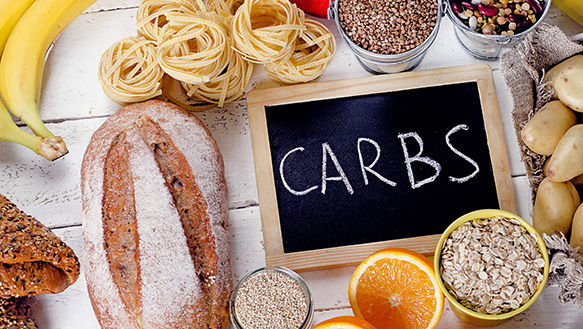How Many Carbohydrates Should You Be Eating For Fat Loss?
- Matt Justice

- Feb 6, 2021
- 4 min read
Updated: May 2, 2024

Almost everyone nowadays has something to say on the matter of carbs and whether we should eat them, or give them up, or just eat a specific amount of them to lose fat. Some people completely advocate eliminating them from our diet and I've worked alongside a fair amount of PTs with a background in bodybuilding who are anti carbs and put almost every one of their brand-new-to-the-gym clients on a no carb diet in the hope of seeing immediate results that they can post all over Facebook and claim they are the best PT around for achieving fat loss.
Of course - the ones they don't post progress pictures of are the ones who have developed serious fatigue and lack of motivation due to such a drastic change in their lifestyle and nutrition habits and can no longer continue with said PT.
There are also people who can not control their carb addiction and could not live without eating them, and if they did cut them out they would end up binging on them and completely derailing their weight loss hopes.
Well, the truth is that carbs are not actually needed in our diet. We don't HAVE to consume them to function or survive. We can make the sugars from other substances in the body. Which asks the question - if we don't actually need them, what's the point in eating them?
Well, for a start they taste flipping awesome for the most part! Let's face it if I offered you a meal with a side of carbs or no side of carbs, you'd normally opt for the side order! They also allow us to perform better in situations such as sport and exercise. A lot of exercise that you perform will use carbohydrates as an energy source and therefore they can help you to perform at your best.
Of course it depends on the type of exercise you will be performing; if you are purely staying in shape on a basic health and fitness journey, or if you are a pro athlete running endurance races such as marathons.
The amount will vary person to person but for fat loss there appears to be no significant advantage to eating a low carb or high carb diet, as long as you account for calories and protein intake. If you are in a calorie deficit and eating a high protein diet then you are free to balance the rest of your calories with carbs or fats how you wish to. If you are unsure of how to calculate the amount of calories you need to lose weight then use this entirely FREE online weight loss calculator to calculate your calories and TDEE.
My own preference tends to lean more towards carbs as I enjoy them with my meals, but it is up to you. Just remember to eat sufficient protein and to ensure you are in a calorie deficit and you will continue to burn fat.
I go into a lot more detail around this when working with people 1:1 in my online coaching program which you can find here.
FAQs
If you have any questions regarding this article please let me know in the comments
Q. How do different types of carbohydrates, such as simple carbs and complex carbs, affect weight loss and overall health?
A. The impact of different types of carbohydrates on weight loss and overall health can vary significantly. Complex carbohydrates, such as whole grains and vegetables, provide sustained energy and essential nutrients, promoting satiety and stable blood sugar levels. In contrast, simple carbohydrates, like refined sugars and processed foods, can lead to rapid spikes and crashes in blood sugar, potentially contributing to weight gain and metabolic issues. Understanding the glycemic index and glycemic load of foods can help you make informed choices about carbohydrate consumption to support your weight loss and overall health goals.
Q. Are there any potential long-term consequences of completely eliminating carbohydrates from one's diet?
A. Completely eliminating carbohydrates from one's diet may lead to short-term weight loss due to reduced calorie intake, but it can also have potential long-term consequences. Carbohydrates are the body's primary source of energy, especially for high-intensity activities. Prolonged carb restriction may result in decreased energy levels, impaired cognitive function, and nutrient deficiencies, particularly in fibre, vitamins, and minerals found abundantly in carbohydrate-rich foods like fruits, vegetables, and whole grains. Additionally, strict carb avoidance may disrupt metabolic processes and lead to negative physiological adaptations, making weight maintenance challenging in the long run.
Q. What strategies can someone employ to manage carb consumption effectively, especially if they struggle with cravings or addiction?
A. Managing carb consumption effectively requires a balanced approach that addresses both physical and psychological aspects. Strategies include focusing on nutrient-dense, whole-food sources of carbohydrates, such as fruits, vegetables, legumes, and whole grains, while limiting intake of refined sugars and processed snacks. Incorporating protein and healthy fats into meals can enhance satiety and stabilise blood sugar levels, reducing cravings for high-carb foods. Practicing mindful eating techniques, such as paying attention to hunger and fullness cues, and finding alternative coping mechanisms for stress or emotional triggers can help individuals navigate carb cravings and maintain a sustainable approach to weight loss and overall well-being.



Comments